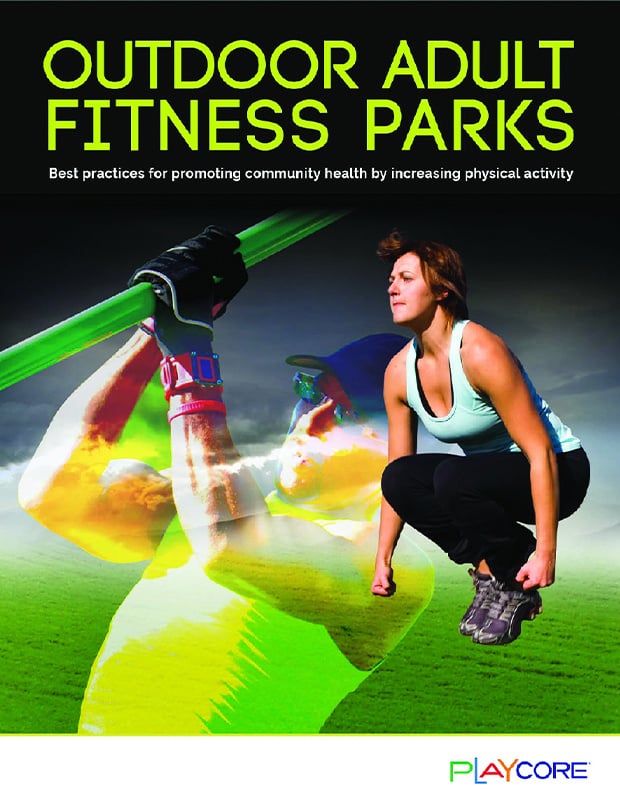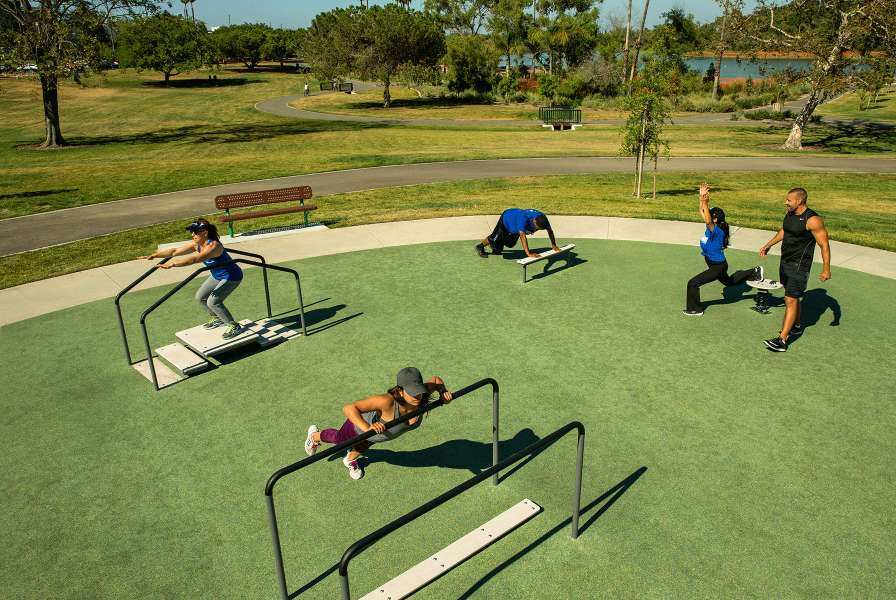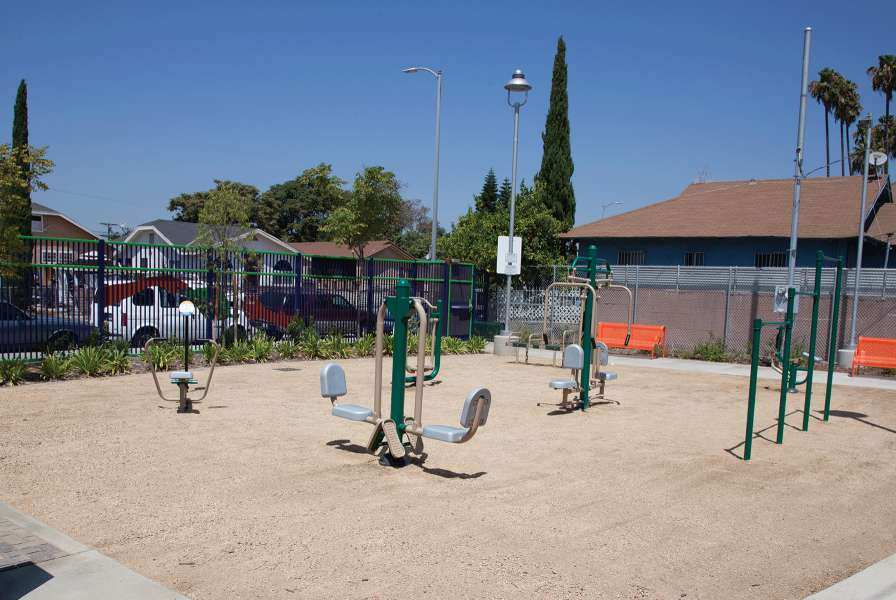- Home
- Resources
- Programs Into Practice
- Outdoor Adult Fitness
Explore Outdoor Adult Fitness
Outdoor fitness hubs are a growing way to help get adults actively engaged in healthy activity. Creating an effective space can be a challenge without the right information to help guide your choices. Discover best-practice guidelines for aligning to health benefits and total body fitness when designing outdoor fitness spaces.
Related Resources

Outdoor Adult Fitness
With the constant increase in adult obesity, encouraging regular physical activity is an important consideration for public health. It is time to think about new ways to make physical activity and exercise more accessible, available, affordable, pleasurable, and ultimately, more useful to society. Research is supporting the notion that Outdoor Fitness Parks for adults provide a variety of relevant outcomes to community inhabitants through their increased participation in more moderate to vigorous physical activity.





